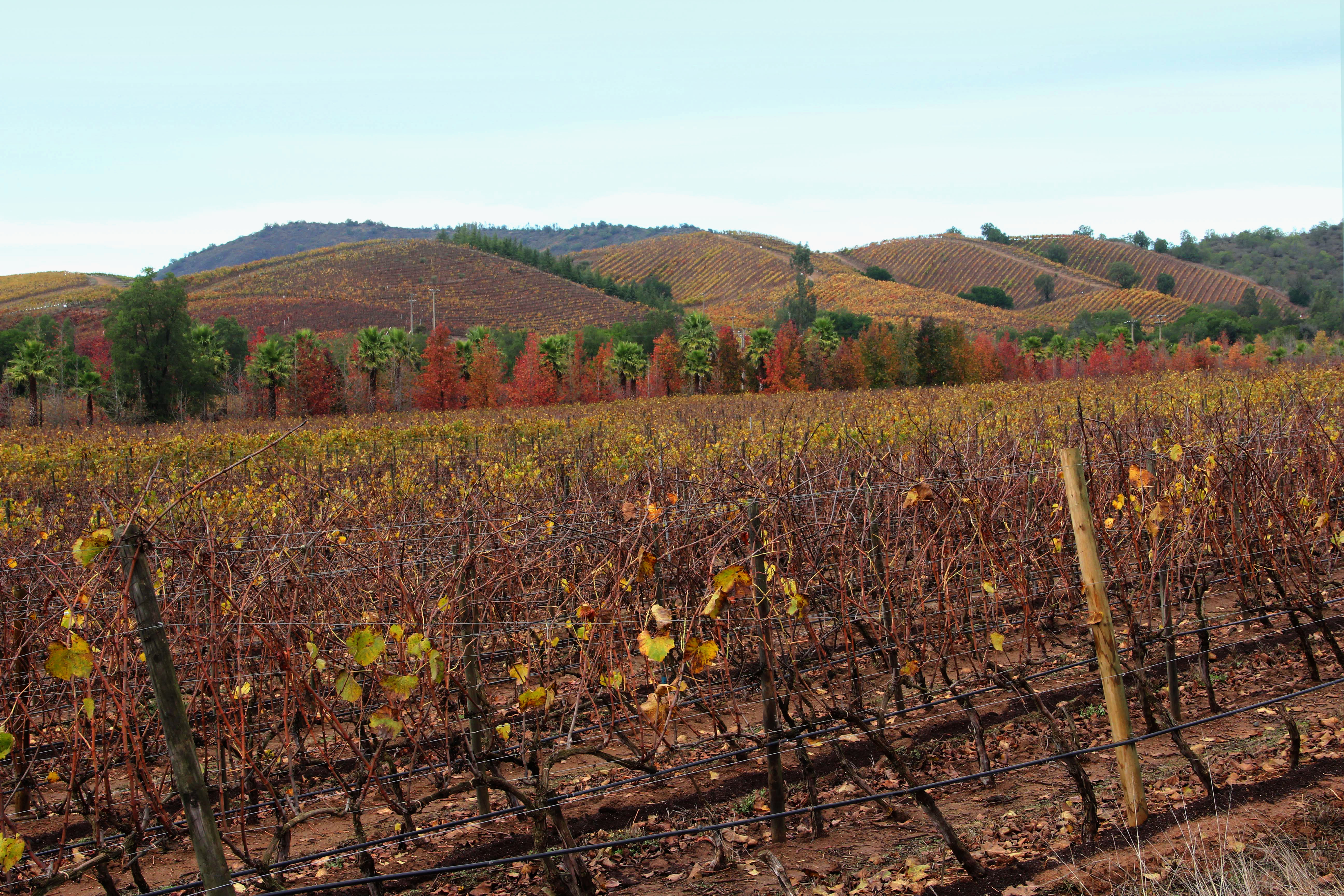
The combination of a lack of water, drier lands, and warming temperatures has an immense effect on vineyards in Casablanca, a region in Chile, with a climate and soil composition much like that of California.
"These conditions change the taste of the wines produced," Benjamin Culver, a guide at Kingston Family Vineyards, said. "Warmer weather makes the grapes ripen faster, which generates more alcohol content in the wine and a fruity taste. The accelerated maturation leads to an earlier harvest, as the grapes reach their peak sooner. Comparatively, cooler weather makes wine spicier and less fruity."
In addition to creating a different palette of wine, the shifts in environmental factors can lead to decreased production. The Chilean Wine Production Report of 2015 attributes a drop in wine production in 2014 to frosts and droughts. In addition, as production and harvest decrease, vineyards can no longer afford to hire as many workers as in previous years—and the decline in jobs negatively affects the entire community.
The vineyards in Casablanca have looked for solutions—experimenting with varietals that work well with the climatic conditions, such as cold climate wines like Sauvignon Blanc, Chardonnay, Pinot Noir and Syrah. These strains flourish in Casablanca, with its cooler climate due to sea breezes, and adapt well to the atmospheric conditions.
A few vineyards tackle climate change and sustainability challenges by incorporating organic and biodynamic techniques to produce wine. Kingston Family Vineyards, Veramonte Vineyards, and Emiliana Vineyards have all introduced innovative processes.
Kingston Family Vineyards recently chose to go organic. A machine pulls weeds out of the ground and no herbicides are used to spray crops. Compost is taken from their dairy farm and spread as fertilizer among the vines. According to Culver, "the decision sparked some controversy at first due to the expensive up-front costs. However, it was decided that the benefits outweighed the start-up costs and the vineyard continued with the plan."
Veramonte Vineyards has been completely organic for the past six years and will receive its certification in September 2017. Rodrigo Soto, a winemaker at Veramonte Vineyards, spearheaded the movement to implement organic techniques to maintain a healthier vineyard, effectively doubling the lifetime and making the vineyard more sustainable.
"Natural compost from the vineyard is used as fertilizer," said Andres Torres, a host at Veramonte Vineyards. "Instead of using machines that compact the soil, we have sheep that eat the grass and help to aerate the ground. There are beans planted in the aisles between the vines which work to attract nitrates to soil for added nutrients. The harvest process is completed manually, with only native juices and no chemical products."
Torres added, "Veramonte Vineyards has a small bee production to aid with the pollination process of the grape vines. The property has many gardens filled with natural Chilean species that bring specific insects for pollination and prevent vines from disease because insects prefer the native species over the growing grapes."
Perhaps the most innovative process that Veramonte Vineyards has implemented involves a technique that does not use a large quantity of water for the vines. The crop is forced to spread their roots farther so they can find their own water. Byhaving vines seek out their own water source, the taste of the grapes is affected. This farming process leads to flavorful grapes that are then harvested to develop high-quality wines.
Emiliana Vineyards, a certified organic vineyard, also makes use of natural fertilizers and native species to bring biodiversity, pollination and help soil health, as well as beans to attract nitrates to the soil. It relies on biodynamics to create its wines, a scientific-spiritual concept developed by Rudolf Steiner in the 1920s, that focuses on the life force and vitality of the Earth.
Wilson Quintanilla, a guide at Emiliana Vineyards, spoke about how biodynamics is present within winemaking: "The harvest is the act of taking energy from the Earth that then must be replaced to keep the soil healthy. Biodynamic vineyards rely on the lunar calendar to determine the best time for harvesting grapes. Another facet is having a balanced and diverse ecosystem. As vineyards are known for being destructive to the natural habitat, it is important to include native plants and animals in the infrastructure of the vineyard to protect the integrity of the environment."
To combat occasional financial losses of workers during unproductive periods, various vineyards have programs in place to aid their employees. Casas del Bosque is a vineyard located in Casablanca with three separate restaurants. Each restaurant serves different types of cuisine and caters to a different niche of consumers.
"Sales from the restaurants relieve some of the financial burden during times of low production," said Christopher Ruiz, a guide at Casas del Bosque. "The proceeds from the restaurants help protect the employees from the risk of being laid off."
Quintanilla explained the Social Responsibility Program at Emiliana Vineyards. "The program provides workers with professional development opportunities, a micro-enterprise program, and a housing program. The micro-enterprise program is a dedicated space on the vineyard for manufacturing honey, olive oil, wool, and hats. The products are sold to the public and the proceeds go directly to workers on the vineyard."
The effects of climate change on the vineyards in the Casablanca region of Chile have made the various vineyards more aware of the importance of caring for their ecosystem. The constantly changing climate paired with a lack of water spark innovative ideas to create more sustainable vineyards that protect the workers and local community while producing great tasting wines.




